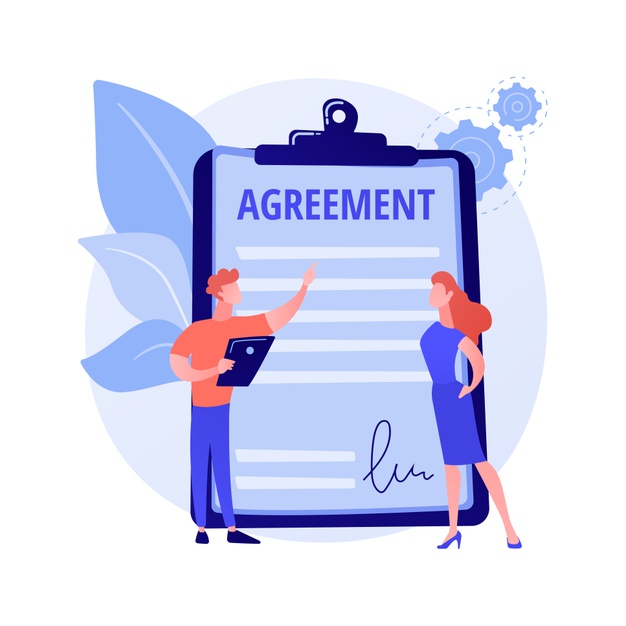
Intellectual property law is a crucial topic. But few are familiar with the processes that protect their intellectual property assets. Many people think the United States Patent and Trademark Office (USPTO) processes a lot of patent applications, all for inventors who just want to get ahead of a competitor. However, intellectual property protection is so much more, and it is important to anyone running a business.
License agreements are one important area of intellectual property law. A license agreement involves at least two parties—a licensee and a licensor. The licensee is someone seeking to use the intellectual property rights of another for a specific period. The licensor, on the other hand, is the party granting rights for intellectual property or licensed products to licensees
Knowing the obligations of each party and what is prohibited and allowed by law is key to understanding license agreements. Like any other legal agreement, a party can sue you for any breach of a license agreement. To avoid this, it is helpful to know these eight dos and dont’s, whether you are the licensee or the licensor.
Not all licensors are created equal. If a license agreement turns out to be invalid, the royalties you have been paying could be for nothing. Research the prospective licensor online. See if they have been involved in anything that is questionable. Be cautious, especially if it is your first time dealing with an intellectual property license.
Specific terms may be imposed in any intellectual property license. Because these terms become part of your legal rights as licensor or licensee, they must be clearly stated in the contract. There should be no room for vagueness or ambiguity.

Being granted the right and license to use any intellectual property is rarely absolute. Oftentimes, intellectual property rights are to be used only in limited circumstances. These can vary depending on the agreement. Clarifying exactly how and when you can use the intellectual property is critical.
Licensees shall only use the licensed intellectual property in the geographic area that is agreed upon. Comply with these provisions to prevent having the license agreement terminated. Similarly, remember that license agreements are rarely perpetual. Exclusivity, expiration, and renewal terms must be specified in the licensing agreement.
Take note that unless stated otherwise, a license grant may be revoked. Events or violations that will lead to such revocation must be included in the licensing contract. Revocation, along with other licensing terms, is permitted in accordance with relevant contract and intellectual property laws. As such, knowledge of the law is crucial.
Negotiation is key to licensing fees and royalties. A license fee is often composed of an initial payment and annual or monthly payments, which are represented by fixed amounts. Some licenses, however, require an initial fixed payment and variable royalty payments made regularly. The amount of the royalty payment is often a percentage based on sales, which depend largely on the performance of the licensed product in the market.
Although governed by the same laws, software licensing is a bit different. Check for software license agreements that include the right to get updates, which often address bugs and other issues. Including updates in the licensing agreement often improves the merchantability of certain licensed software, so there is a high likelihood that they are included. However, it may depend on the nature of the software, so make sure to clarify early on.
The notion of indemnification is meant to protect one party from any wrongdoing committed by the other party. For example, indemnification would protect a licensor from the licensee’s unauthorized use or misuse of the licensed material, or a licensee from infringement claims asserted by third parties against the licensor. When you use a license agreement for something unlawful, you will be liable for issues arising from your own actions.
Drafting, accepting, or terminating a license agreement is a lot more complicated than it may seem. Before taking any of these actions, make sure you have a trusted IP lawyer on your side. A lawyer can explain in detail what the license terms mean, and how they can impact you and your business.
For clarifications on the above or for any other questions on license agreements, talk to us at War IP Law, PLLC. Call us at 202-800-3754 for an initial consultation.
S. War 2022-11-04T17:20:32+00:00 Licensing Agreements | Filing at the United States Patent Office: A Look at License Agreements" width="500" height="383" />
Filing at the United States Patent Office: A Look at License Agreements" width="500" height="383" />




If you have questions or need help with an intellectual property matter, use this form to ask us a question or just give us a call. We’re here to help.
5335 Wisconsin Ave, NW
Suite 440
Washington, D.C. 20015-2079
TELEPHONE:
(202) 952-4004
If you have questions or need help with an intellectual property matter, use this form to ask us a question or just give us a call. We’re here to help.
The contents of this website are intended to convey general information only and not to provide legal advice. The contents of this website, the posting, and viewing of the information on this website, should not be construed as, and should not be relied upon for, legal advice in any particular circumstance or fact situation. The information presented on this website may not reflect the most current legal developments. No action should be taken in reliance on the information contained on this website. We disclaim all liability in respect to actions taken or not taken based on any content of this site to the fullest extent permitted by law. For advice on specific legal issues, an attorney should be contacted. Nothing on this website is an offer to represent you, and nothing on this website is intended to create an attorney‑client relationship. An attorney-client relationship may only be established through direct attorney‑to‑client communication that is confirmed by the execution of an engagement agreement. The content of any unsolicited email sent to War IP Law PLLC, or to any of its attorneys at an email address available on this website, will not create an attorney‑client relationship and the contents of such unsolicited email shall not be considered confidential. Therefore, do not use this website or the email addresses available on this website to provide confidential information about yourself or a legal matter to War IP Law PLLC or any of its attorneys.
Copyright 2024 War IP Law PLLC | All Rights Reserved | Powered by Advantage Attorney Marketing & Cloud Services | Advantage Chat